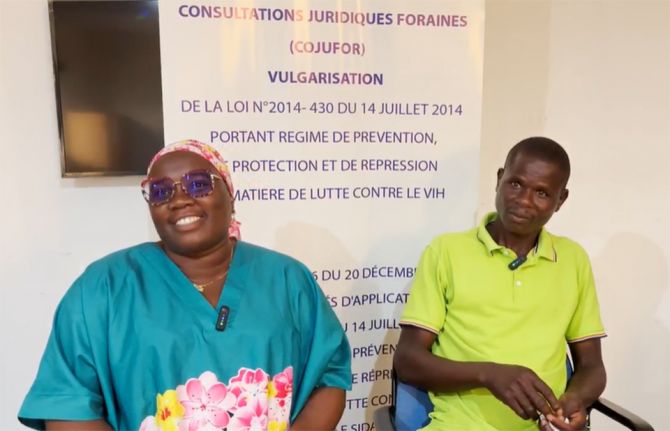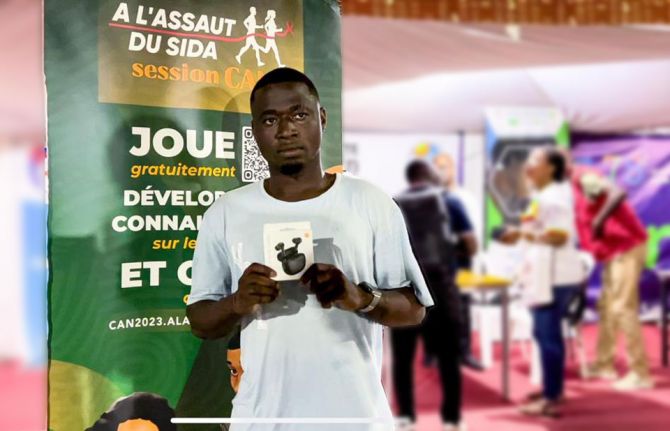

Feature Story
Côte d’Ivoire advances toward Universal Health Coverage—Leaving No One Behind
19 May 2025
19 May 2025 19 May 2025The government of Côte d’Ivoire is transforming access to health services, including HIV services, in its commitment to achieve Universal Health Coverage (UHC).
The government has made UHC registration mandatory and nearly 60% of the population is already enrolled, demonstrating the country’s political will to build a resilient and equitable health system.
A central priority of the Government’s UHC agenda—supported by the World Bank, the Global Fund and UNAIDS—is to ensure that all people living with HIV, estimated at over 400 000 people, are fully enrolled in the national health insurance scheme. Special attention is being given to identifying modalities through which the poorest and most vulnerable people living with HIV will benefit from free coverage under UHC.
In 2022, UNAIDS conducted an evaluation of Côte d’Ivoire’s social protection system through the lens of the HIV response. This work informed the 2024–2028 National Social Protection Strategy, which now explicitly recognizes people living with HIV as a priority vulnerable group.
“This is an urgent plea—I want all people living with HIV to have free access to the UHC card because many people simply cannot afford to contribute. I’m calling on the government to cover their premiums,” said Tinhidé Adéline, Community Counsellor.
Efforts are underway to integrate HIV-related services and products into the UHC benefits package. Over the past three years UNAIDS, in partnership with the Network of Organizations of People Living with HIV (RIP+), has mobilized communities and advocated with national authorities to ensure people living with HIV are enrolled in UHC, ensuring that stigma and exclusion do not stand in the way of health and dignity.
“UHC is a real opportunity for people living with HIV because being HIV-positive is often a barrier to accessing health insurance,” says Filbert Guéhi, Chair of the Board, RIP+.
UNAIDS, in collaboration with WHO, is also assisting RIP+ in developing a budgeted community-based strategy to sensitize and register people living with HIV in UHC to guarantee that services reach those most in need. This community-driven approach to UHC enrollment for people living with HIV represents a major step forward in ensuring equitable access to health care for vulnerable populations.
Advocacy continues to establish a sustainable national mechanism to automatically enroll the most vulnerable people living with HIV in the non-contributory Health Insurance Scheme. A two-year pilot initiative on this is currently being supported by The Global Fund and The World Bank. This is a vital step toward ensuring no one is left behind, and toward harnessing UHC as a powerful lever in the fight to end AIDS by 2030.
Ensuring full inclusion of people living with HIV in the roll out of UHC was a commitment made by the government at the annual session of the National AIDS Council in 2023 chaired by the Vice-President of Côte d’Ivoire Tiémoko Koné and in presence of the First Lady Madame Dominique Ouattara. This initiative is a cornerstone of the Government’s long-term strategy to transition towards a sustainable, nationally owned HIV response to end AIDS as a public health threat by 2030.



